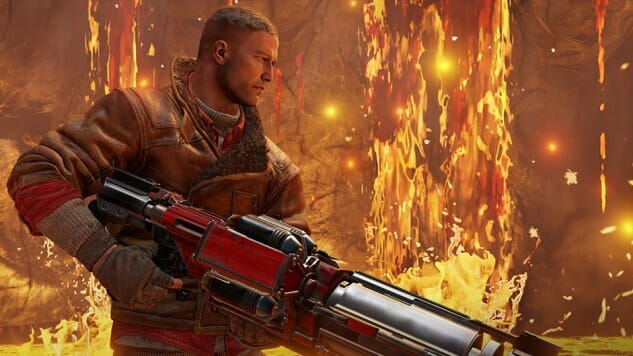Quake Champions Q&A: “You Can’t Miss the Boat if You’re the Only One at the Dock”

This weekend, Texas was once again home to QuakeCon, the Bring Your Own Computer tournament and Bethesda publisher event held every year since 1996. While there, I got a chance to sit down with Quake Champions community manager Joshua Boyle and ask some questions about the future of this early access arena FPS. The game’s gotten off to a rough start but has had some exciting developments as of late, particularly the addition of Wolfenstein protagonist B.J. Blazkowicz to its roster. What does the future hold for this title, especially now that it’s gone completely free to play? I dug around a bit to find out.
Paste: So, walk me through this. The early access free to play model used to cost $30. And now it’s just straight free to play, yes? Are there any plans to further reward or compensate the early adopters?
Joshua Boyle: Funny about that, I feel like there still hasn’t been enough attention put on the fact that the early adopters pack, the Champion’s Pack, is like the all-time greatest value I’ve ever seen in a game, because you literally get whatever champion we will ever make, if you’re in on that. We have plans for what we will do to reward those people, but I think over time, that reward will absolutely speak for itself, because that’s not gonna last forever. It probably won’t even last for a whole lot longer. The value of that exponentially [rises] as the game adds more champions. If you do the math of how much this champion costs, and you’ve got all these and you just keep stacking more, it just exponentially becomes a better deal.
Paste: So far, Quake Champions does not have the best Steam rating, and the criticism centers largely on performance issues. Some claim that you are too focused on offering aesthetic content instead of fixing stuff like poor matchmaking, poor balance (including pay to win features), rampant cheating, system crashes, faulty unpredictable or inaccurate hit boxes—even the user interface is a source of contention. How do you plan to counter or address these complaints in the future?
Boyle: Well first of all, the easy thing is, we know our community and we change things in our games based on our community, more than any other game I’ve ever worked on. Usually it’s like you have the path, you have the pipeline, and you can’t really be agile with that because those are the plans that have not only been agreed on, it’s just too hard to pivot when you’re so deep in one thing or another. But the really cool thing about our team is, I’m a community manager so part of my job is not only to be the liaison between both the devs and the community, but also to be super deep in the community and know what all these things are, but half the time when I’m bringing them stuff, they’re either already read it, or they’re already working on that stuff. I’d say we have the most concerned team of any I’ve ever worked on, in the best way possible, because they obviously just want everybody in there having as much fun as possible, with zero barriers. So, if you take netcode, for example, where we were a year ago to where we are now…there’s a German guy that does these FPS comparisons where he always compares netcode. I mean, we’re above almost everybody now. And it’s funny that nobody talks about it, because it’s not a problem anymore. So, we’re still in early access, and not everything is exactly as we want it to be, or we wouldn’t still be in early access.